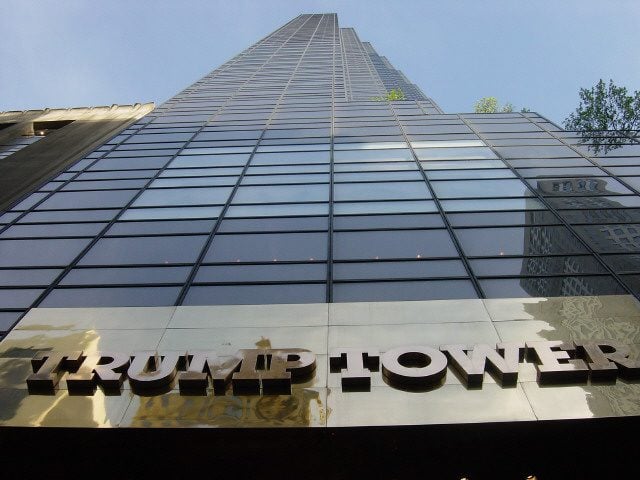![https://commons.wikimedia.org/wiki/File%3ASeventh_crusade.jpg; By Guillaume de Saint-Pathus, Vie et miracles de Saint Louis [Public domain], via Wikimedia Commons](https://wp-media.patheos.com/blogs/sites/533/2017/06/Peter_the_Hermit_Preaching_the_First_Crusade.jpg)
The Washington Post reports today that
Attorneys general for the District of Columbia [Karl A. Racine (D)] and the state of Maryland [Brian E. Frosh (D)] say they will sue President Trump on Monday, alleging that he has violated anti-corruption clauses in the Constitution by accepting millions in payments and benefits from foreign governments since moving into the White House.
After a lengthy preamble around Trump’s failure to sell off his businesses, the Post provides details:
The constitutional question D.C. and Maryland will put before a federal judge is whether Trump’s business ownership amount to violations of parts of the Constitution known as the foreign and domestic emoluments clauses.
To guard against foreign countries gaining sway over the new republic’s ambassadors in the late 1700s, drafters of the Constitution prohibited any “Person holding any Office of Profit or Trust” from accepting “any present, Emolument, Office or Title, of any kind whatever, from any King, Prince, or foreign State.”
In another part of the Constitution, framers sought to prevent a president from favoring one state over another, forbidding him from receiving any gift or emolument from a state and instead, only the compensation approved by Congress.
The specific complaints involve Trump’s Washington, D.C., location potentially taking business away from state-owned or -subsidized convention centers, as well as issues around foreign governments doing business at Trump properties.
Now, I am not a constitutional scholar, so I am not going to voice any opinion on whether what Trump is doing violates the constitution. That’s something for the courts to assess. It’s presumably something that’s well-defined and after 200 plus years, there ought to be some precedents that can be applied, some consensus on what an emolument is and is not. Is the Trump Organization marketing to foreign governments and suggesting to them that they’d receive favorable foreign policy decisions upon doing business with them? Are any such foreign governments paying market rates? And so on.
There might well be elements that build into a credible case, but parts of their claim really seem far-fetched, such as:
The suit also alleges that Trump is violating domestic emoluments by creating a situation in which states feel compelled to compete for Trump’s favor, perhaps by offering zoning exemptions, waivers or other benefits to help his businesses.
The attorneys general then allege that their states/district will be harmed because they foresee other states giving Trump businesses special treatment, and their own populations being harmed “by federal budget cuts that Trump could seek as retribution” when their states/district refuse to do likewise.
And what they are seeking is vague:
The suit seeks an injunction to force Trump to stop violating the Constitution, but leaves it up to the court to decide how that should be accomplished.
But this really takes a turn into Trump Derangement Syndrome when they reveal their method for uncovering Trump’s violations:
If a federal judge allows the case to proceed, Racine and Frosh say, one of the first steps will be to demand through the discovery process copies of Trump’s personal tax returns to gauge the extent of his foreign business dealings. That fight would most likely end up before the Supreme Court, the two said, with Trump’s attorneys having to defend why the returns should remain private.
The tax returns? Really? Maybe I’m just ignorant in the ways of tax reporting by billionaires, but why would any of the specific business dealings, much less the questions of any nefarious deal-making around stays by Gulf princes, be on his personal tax returns? Wouldn’t this require discovery into the business dealings of the Trump Organization? To call for the release of personal tax returns suggests that this is nothing more than a personal obsession by unserious people.
There’s a lot that’s concerning about Trump’s continued business dealings, and those of his children and extended family. But this lawsuit turns all those legitimate concerns into something laughable.
Image: Peter the Hermit preaching the First Crusade. https://commons.wikimedia.org/wiki/File%3ASeventh_crusade.jpg; By Guillaume de Saint-Pathus, Vie et miracles de Saint Louis [Public domain], via Wikimedia Commons













